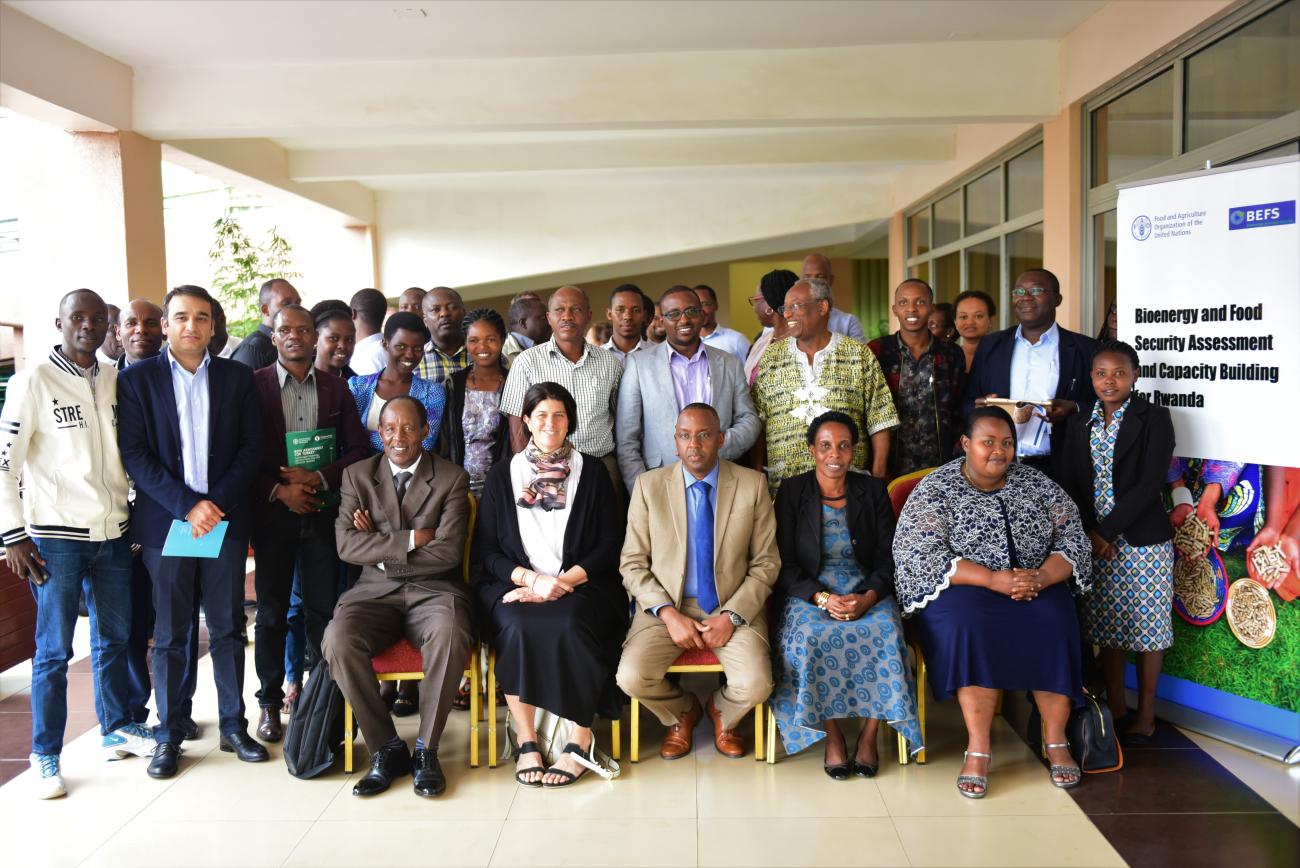FAO-led project explores sustainable bioenergy options for Rwanda

The Government of Rwanda together with FAO launched a project to support the country in assessing sustainable bioenergy options to reduce reliance on wood fuel.
The Government of Rwanda together with FAO recently launched a project to support the country in assessing sustainable bioenergy options to reduce reliance on wood fuel. The project - “Bioenergy and Food Security Assessment and Capacity Building for Rwanda” - will analyze and identify potential bioenergy feedstock and technologies that can be developed in Rwanda for both decentralized energy production and cooking purposes.
Expected to contribute to the Nationally Determined Contributions (NDCs) targets, the project will use FAOs’ Bioenergy and Food Security (BEFS) approach to assess the sustainable bioenergy options of the country.
Additionally, the project intends to build the capacity of key stakeholders in the bioenergy sector, in particular those involved in the development of the Biomass Energy Strategy, on how to use the BEFS tools.
Bioenergy and Agriculture linkages
Bioenergy is renewable energy from biomass which can be obtained from agriculture and forestry. And for bioenergy to be sustainable, the biomass should be acquired in a sustainable manner without negatively impacting agriculture and the forests. FAO Natural Resources officer, Irini Maltsoglou explains:
“Biomass options can be sustainably derived from residues of crop, livestock, and sustainably managed forest resources.”
He further explained that the project seeks to identify the sustainable opportunities existing in Rwanda through screening current agriculture and forestry production. Some examples are residues from cassava, rice, tea, coffee and other crops.
Rwanda heavily relies on traditional biomass, for instance, wood, charcoal, dung, with more than 83 percent of households using firewood. Increase in demand for cooking fuel has exerted immense pressure on forestry resource and the country aims to reach a potential net reduction in wood use to 5 770 000t by 2030 through a number of measures, including developing a modern and efficient charcoal value chain.
By 2024, the government envisage to reduce the reliance on wood fuel for cooking from 83 percent of the households to 42 percent. Furthermore, the targets to attain universal access to electricity have also been set. It’s anticipated that 52 percent of households will be connected to the grid and 48 percent connected by off grid electricity solutions by 2024.
Reducing greenhouse gas emissions
Steven Bihinda, the Renewable Energy Senior Engineer of the Ministry of Infrastructure, said:
“The project will support the country’s efforts to look into viable bioenergy options that can contribute to Rwanda achieving its clean cooking target and reducing reliance on unsustainable use of wood fuel.”
Rwanda's total greenhouse gas emissions in 2014 were 7.59 million metric tons of carbon dioxide equivalent (MtCO2e), contributing to 0.4% of the global greenhouse gas emissions. Bihinda added:
“The increasing costs of fossil fuels, degrading forestry resources, the threat of climate change, and the need to increase energy security and access have put alternative energy sources at the forefront. There is still limited insight into alternative bioenergy options in the country, with most of the effort to date having been dedicated to forest resources. Therefore, a full assessment of the bioenergy options is necessary so that the results could be used in developing Rwanda’s sustainable biomass energy action plan.”
FAO Representative in Rwanda, Gualbert Gbehounou, indicated that the project will definitely add to ongoing efforts in Rwanda to transition - in a sustainable way - from traditional use of biomass to modern biomass for fuel, calling for a cross-sectorial and multidisciplinary approach towards Bioenergy sector development.








